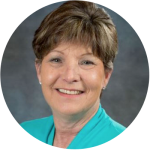
Submitted by: TJ Bliss
Former Education Program Officer
William & Flora Hewlett Foundation
What are Open Educational Resource (OER) Degrees?
OER degrees are series of college courses that utilize only open educational resources and that students may take to complete entire degree programs. At this point, OER Degrees are primarily offered at community colleges in the United States, with some programs now under development in Canada. The community college network Achieving the Dream is leading out on supporting colleges to establish OER Degrees in the U.S. by “engaging faculty in the redesign of courses and degree programs through the replacement of proprietary textbooks with open educational resources.” Governments are also getting involved, with the governors of California and New York providing financial support to community colleges in their respective states to help establish OER Degrees.
Why is it important?
The cost of textbooks and other educational materials has become prohibitively expensive for many community college students. These students often come from disadvantaged backgrounds and are disproportionately affected by financial barriers in the education system. The immediate goal of OER Degrees is to reduce costs for students and accelerate their progress through college. But an important secondary impact of OER Degrees is to change the culture of institutions of higher education so that they create systems and structures for better connecting curriculum and pedagogy to improved student learning outcomes. In short, OER Degrees are important because they are specifically designed to help remove financial roadblocks that can derail students’ progress and to spur other changes in teaching and learning and course design that will increase the likelihood of degree and certificate completion.
From the perspective of philanthropic support for OER, the growth and acceleration of OER Degrees represents a broader movement away from idiosyncratic adoption of OER toward mainstream institutionalization of OER and OER-enabled pedagogies. Over the past 20 years, the Hewlett Foundation and other financial backers of the OER movement have supported efforts to increase mainstream adoption of OER. About 10 years ago, funding began to focus more on open textbooks, which are forms of OER that are easier for faculty to adopt than smaller chunks of open content. The OER Degree approach is an evolution in the open textbook line of strategy, rapidly accelerating the adoption of open textbooks (and even chunky bits of OER) in higher education. The OER Degree is the best example to date of what institutionalized OER adoption looks like.
What changes do you hope it will bring for your country/region?
The spread of OER Degrees throughout the North American community college system would increase the likelihood of college completion for hundreds of thousands of students. Many of these students are at great risk of dropping out of college without a degree, but with a significant student loan debt to pay off. Students who complete college are enabled to move into productive jobs more easily or move on to obtain higher degrees that can increase their earnings and quality of life. OER Degrees help address a critical issue in higher education throughout the continent. As the 50 or so community colleges currently working to establish and expand OER Degrees, I hope that the 1200 or so other community colleges will take note and follow the lead of these pioneer schools. There is also a potential for OER Degrees to expand in to the 4-year system, as more and more evidence accumulates showing positive impact on college completion, teaching and learning.
What is the future of OER Degrees?
Evidence is growing that OER Degrees can increase college completion rates and improve instruction and learning in the college classroom. As this evidence accumulates, I predict that more state/provincial governments will see OER Degrees as a way to address problems they care about in their community college (and potentially other higher education) systems. California and New York have already moved forward with support for OER Degrees, and will continue to learn and modify their approaches. These learnings, along with the information obtained from the OER Degree Initiative at Achieving the Dream, will help other states and college networks support OER degrees in their own contexts. I think the future of OER Degrees is bright.

Submitted by: Don Whipple
Director of Operations | Open College at Kaplan University
What are Open Education Degrees?
At Kaplan University, our approach to “open degrees” integrates the use of Open Education Resources (OERs) and customized learning plans to meet students’ individual academic and professional goals into a formal degree – the Bachelor of Science in Professional Studies (BSPR).
With the support of a faculty advisor, students choose Kaplan University courses for their degree plan and the university provides curated OERs that align to the outcomes of these courses. These include ebooks, videos, and open courses that are sourced from resources such as OER Commons and College Open Textbooks to name a few. These resources provide students with a cost-effective means to prepare for their Kaplan University courses. Once students consume these OERs, their learning is assessed by Kaplan University for demonstrated mastery. Students progress through the degree at their own pace with access to subject matter faculty along the way.
Why is it important?
The BSPR provides Kaplan University the opportunity to further meet the educational needs of our non-traditional students: an accredited bachelor’s degree that is personalized and affordable that works on students’ schedules, not ours. The BSPR also allows for more transfer and work experience credit than traditional programs, thus saving students time and money.
What changes do you hope it will bring for learners and your institution?
We hope this personal yet affordable and flexible degree program will give additional credence to the fact that adult learners can excel in a self-paced, self-directed environment, using OERs as the foundation of their learning. Programmatically, we hope that OERs will continue to influence the ways institutions can leverage “flipped learning” and the competencies students bring in to a degree. Additionally, increased use of OERs also holds the potential to change the teaching and learning process through a focus on competency-based approach, which Kaplan University has been building on for nearly a decade.
What is the future of Open Education Degrees?
The future is bright for Open Degrees! In fall 2017, Kaplan University will be launching the Associate of Science in Professional Studies (ASPR). While the ASPR will be delivered in the same manner using OERs, our student census may be different. The ASPR will be a pathway to ladder into the BSPR or more traditional programs. In addition, the ASPR will provide international students an affordable way to earn an accredited associate’s degree beginning their educational journey in the United States.
Submitted by: Amanda Coolidge, Senior Manager, Open Education; BCcampus; Victoria British Columbia, Canada

Submitted by: Dr. Dianne G. Van Hook
Chancellor, College of the Canyons
Santa Clarita, California, USA
What are Open Education Degrees?
The futurist Jim Dator said: “Any useful statement about the future should at first seem ridiculous.” The willingness to think about what seems ridiculous is what gives the people of California access to world-class higher education. In the 1960s, it was ridiculous to think that everyone in California should not only be able to pursue higher education, but also that higher education should be physically available in all parts of this huge state (nearly 40 million people living in nearly 424,000 sq km). Thanks to the good work of so many, OER degrees are becoming a reality.
This year, College of the Canyons will launch an OER pathway in Sociology, which is one of our larger programs. Last year, 557 students majored in Sociology, with 3,400 total enrollments in Sociology classes. Also, this year we will complete development of a certificate in Water Systems Technology, a program that prepares students for good jobs and helps to manage a precious natural resource. Both pathways provide students with a map of classes that they can complete without purchasing costly commercial textbooks. These pathways also provide faculty with the opportunity to create and contextualize the learning materials to best meet the needs of their students.
Why are Open Education Degrees important?
California Community Colleges comprise the largest public system of higher education in the world. What we do and how we address equity in our community colleges affects our state and our nation in an immense and scalable way. California’s community colleges enroll 2.2 million students annually. This is 32% of all community college students in the U.S.; 11% of all undergraduate students in the U.S. and 61% of all Bachelor’s Degree earners in California started at a community college.
Access to learning, is no longer merely a choice, but a necessity. Lifelong learning is the driver for closing existing equity gaps; skills and knowledge play a major role in reducing poverty and promoting personal financial growth. However, in the U.S, expensive textbooks contribute to incredible student loan debt. In the U.S., it is currently $1.48 trillion of outstanding loan debt; with 44 million borrowers. One in 10 graduates accumulates an average student loan balance of $37,172. Today, 69% of college students in America have student loan debt. All too often, students have to make difficult choices. To buy books or food? To have a place to live, or to remain in college?
At College of the Canyons this year, over 40 different courses used OER in lieu of commercial textbooks. Our faculty are using OER in 200 sections—this equates to 12% of our total class sections. This saves our students $3 million per year. That is life-changing! Open education degrees provide the mechanism to enable anyone to obtain all of the education they need. At College of the Canyons, we are combining OER pathways with other reform efforts to amplify the benefits for our students. For example, we have had great success with acceleration – moving students through remedial courses more quickly – and placement, ensuring students start at the right level class and aren’t forced to take unnecessary remedial classes.
In addition, researchers in the U.S. find that students are more likely to succeed when they follow a defined pathway. Colleges reorient their schedules and supports away from a model that provides students with so many choices that it becomes impossible to choose, to the pathway model—mapping pathways to student goals and helping students stay on target.
What changes do you hope Open Education Degrees will bring to your institution?
Our initiative around OER and Open Education Degrees has helped us to learn more about the cost pressures that our students experience. We know how important it is to address student affordability because we talk to our students and we ask about cost pressures in our student surveys. In order to respond to what students tell us, we have identified funding and developed processes to provide OER and build entire degrees around OER.
Our faculty are familiar with OER not only because I talk about it—although I do so on a regular basis. They’re familiar with OER because it’s part of our new faculty orientation and part of our required training for faculty who want to teach online. In other words, OER is integrated into the culture that exists—it’s not new and different. We recognize and reward faculty who create and adapt OER. Service to the institution does not need to be limited to research and committee work. I have awarded two sabbatical to professors to write open textbooks. We ask about OER when conducting faculty interviews. We think that it’s important that we select new faculty who are concerned about student affordability and equity and who know that OER is a real option. In other words, developing Open Education Degrees has helped to integrate Open Education into our culture.
OEC: What is the future of Open Education Degrees?
In the future OER pathways will be seen as an integral part of affordability, completion and equity initiatives. All across the United States, College Promise initiatives are pursuing the goal of making the first two years of college free and accessible to everyone. Within the California Community Colleges, College Promise has the support of our state Chancellor, Eloy Oakley. There’s no doubt that this will benefit students—even though California Community Colleges charge very low fees and most of our students receive some form of aid, the cost of attending is still a significant barrier.
If we truly want to make a college education affordable, then we have to address the cost of textbooks. Think about the return on investment. Imagine that I raise $1 million for an endowment for a College Promise campaign. That endowment earns 4% interest, which provides $40,000 that could be used to pay student fees for one academic year for around 25 students. Now just imagine if we invested that $40,000 into building courses with OER. At College of the Canyons, our faculty and staff could put together 5 or 6 courses for that amount. This would eliminate textbook costs not just for the 200 students in those classes this semester, but for many years to come.
In this way, OER addresses what our students have told us is the top barrier to their academic success, and OER amplifies and sustains initial investments. This is why OER is an essential part of how we understand College Promise at College of the Canyons.
At College of the Canyons, we are passionate about OER because we are passionate about student success. We have moved OER from an idealistic discussion to concrete actions that increase faculty collaboration and benefit students. If you dare to dream ridiculous ideas about the future, before you know it, they will become reality!

Submitted by: LeBaron Woodward, PhD, Dean of Academic Affairs
and
Stephanie Ricks-Albert, Academic Affairs Specialist
California Community College Chancellor’s Office
What are Open Education (Zero Textbook Cost) Degrees in California?
A Zero Textbook Cost (ZTC) degree is a pathway of courses (major and general education) to a program (associate degree or career technical education certificate) in which the textbooks are free.
ZTC degrees eliminates one of the major barriers for students to attend college and achieve their educational goal, the financial burden.
Why is it important?
Making ZTC degree programs available to students is important because the cost of higher education is having a negative impact on access and success of students. In some educational settings, the cost of textbooks approaches or even exceeds the cost of tuition. The research by the Student Public Interest Research Group (2014) demonstrates that these costs are hindering lower income students from attending college and are therefore limiting access. Additionally, the research shows students actually base course selection decisions on textbook prices and avoid courses with expensive content.
What changes do you hope it will bring for California Community Colleges?
Once the CCCs understand the benefits of the ZTC program for faculty, students, and the community, we hope all CCCs will offer multiple ZTC program pathways.
What is the future of Open Education (Zero Textbook Cost) Degrees for California?
The $5m funding for the Zero Textbook Cost (ZTC) program is a one-time allocation. We are hoping that the future includes permanent funding for the program until all public California higher education systems (California Community Colleges, California State University, and University of California) have at minimum, one ZTC program pathway for students or the institutions have entrenched ZTC program pathways into the college mission.

Submitted by: Richard Sebastian,
Director, OER Degree Initiative, Achieving the Dream, Inc.
What are Open Educational Resources (OER) Degrees?
Achieving the Dream (ATD), a national non-profit organization focused on helping community colleges across the United States achieve sustainable institutional transformation, is leading the Open Educational Resources (OER) Degree Initiative, a 3-year long, grant-funded project that seeks to boost college access and student success by funding selected community colleges to develop and implement OER degrees. This initiative is one of the largest and most ambitious OER projects to date, with 38 community colleges in 13 states participating in the project.
For ATD, an OER degree is the purposeful, coordinated redesign of courses needed for a college degree using open educational resources (OER) in place of proprietary instructional materials. For example, converting a typical associate degree in General Studies into an OER degree would require a community college to offer at least one OER section of all required courses and select elective courses that make up a full degree program, usually about 20-24 courses in total.
Obviously there is some fuzziness around the precise number of elective courses that need to be offered. Generally, ATD recommends that colleges convert enough elective courses and offer them with enough frequency so a full-time student can complete the target OER degree in the same amount of time as a non-OER degree, approximately two years, or four semesters, for an associate degree. While one section is the minimum, ATD encourages colleges to offer more courses when possible.
What an OER degree is NOT is something tangibly different from a traditional degree or certificate. The course requirements are the same; the learning objectives are the same as well; and nowhere on the student’s diploma is there an asterisk noting he or she is receiving OER degree. The primary difference is that the materials for the majority of the OER degree courses are free and openly licensed. In fact, depending on how comprehensive the OER degree program is (i.e. the number of OER course electives offered, the number of course sections for each OER course offered, the frequency with which the OER courses are offered, etc.), a typical student will most likely end up taking a mix of both OER and non-OER courses on his or her path to a degree.
Colleges have given different names to these types of programs: OER degrees, Z degrees (Z for zero), Zero Textbook Cost (ZTC) degrees, and, from our Canadian friends up north, the Zed Cred.
Why are OER degrees important?
OER are important because, in courses that use open materials, students have access to all of the required material on the very first day of class. One way of looking at this is as a cost issue. This is true, but perhaps more importantly, what OER use really does is eliminate cost as a barrier to learning. When that cost barrier is eliminated, students have better options and, as a result, tend perform better. A growing body of research suggests OER use can increase student retention, improve course outcomes, and accelerate time to completion by enabling students to use their textbook savings to enroll in additional courses. Additionally, openly licensed materials give college faculty more flexibility and control over course material and enable them to employ new pedagogical approaches to the course content.
All of the above benefits are amplified when it comes to OER degrees. However, OER degrees are important in how degree implementation differs from OER course adoption. Typically, a colleges foray into OER begins with the adoption of single OER courses by interested and motivated faculty. Often the adoption of these standalone OER courses are done independently, sometimes without the knowledge of college administration or academic leaders. Creating a full OER degree program cannot be done independently. OER degree implementation requires committed and sustained institutional involvement. A college must invest in course development and infrastructure, coordinate a planning process between academic departments and college administrative units, modify institutional systems to identify OER course sections or implement course fees, and enlist non-instructional support and advising staff.
Achieving the Dream’s established approach to improving community college student outcomes at scale is to help colleges engage in bold, holistic, sustainable institutional change, guided by its Institutional Capacity Framework*. At ATD, we believe OER degree implementation does just this, providing colleges an opportunity to engage in work that can create meaningful and sustained institutional transformation.
What changes do you hope it will bring (for your country/region)?
I hope one of the results of ATD’s OER Degree Initiative is an increased awareness and adoption of full OER degree programs. First, with the availability of over 50 fully OER degrees, made up of hundreds of new OER courses, it should be much easier and less expensive for interested community colleges to undertake OER degree work. Second, we hope the outcomes of the OER Degree Initiative’s research study will make a strong case for the financial and academic benefits of investing in OER degree adoption. If everything we currently know about the impact of OER holds true, a dramatic increase in the number of OER courses should lead to a significant increase in course outcomes and program completion for community college students.
What is the future of OER Degrees?
I think the OER degree model will continue to grow and will eventually evolve into OER-only institutions, where all of a college’s courses and programs use free and open course materials. I think this is not only realistic, but inevitable. I think the spell of the authoritative publisher textbook has finally been broken, and faculty, students, and college administrators are realizing that, given all of the other vexing challenges facing higher education, the issue of textbook affordability has a clear and workable solution with OER. You can’t put this genie back into the bottle.

Submitted by: Dr. Laurel Williamson,
District President and Deputy Chancellor and Dr. Mark Johnson,
Dean of Business and Technology; San Jacinto College.
What are Open Educational Resources (OER) Degrees?
Dr. Mark Johnson: At San Jacinto College an OER Degree is when any student uses only free, open educational resources to obtain a credential of higher education—and for us that’s a certificate or an associate degree. OER Degrees represent clearer pathways for students to succeed in college without the tremendous obstacle that high textbook prices often create. By offering students opportunities to earn an entire OER Degree, we’re making that pathway for students much easier to navigate.
Why is it important?
Dr. Laurel Williamson: Full-time college students in Texas seeking a certificate or degree can pay more than $1500 a year in textbook costs. Some textbooks can cost over $300. For many students, especially those who face economic challenges, high textbook costs are barriers to being successful in their classes, to completing their certificates or degrees, and, for many, to even have access to higher education. We don’t want our students to choose between buying the required textbook or paying their rent.
Dr. Mark Johnson: We believe that when students have the required course materials on the first day of class their likelihood of succeeding in their coursework is much higher. OER Degrees ensure students walk into class on the first day of class ready to succeed. That’s why San Jacinto College, through the Achieving the Dream OER Degree initiative, is committed to develop its own OER Degrees.
What changes do you hope it will bring (for your district/state/country)?
Dr. Laurel Williamson: By their nature, OER Degrees are for sharing—with students, with faculty, and with other educators. We would like to see all colleges across Texas and the United States to offer at least one OER Degree or Certificate. Texas has recently passed legislation that incentivizes colleges to adopt OER, and it requires reporting OER offerings to students. We think the OER Degree work we’re already doing at San Jacinto College is setting the stage for other colleges to offer OER Degrees.
What is the future of OER Degrees?
Dr. Mark Johnson: We’re identifying other degrees and certificates that are viable candidates to develop as Open. Based on our research, we’ve seen a need to develop more OER in the career and technical areas, so that’s an area of focus for us, too. This means we’re committed to creating and curating our own library of open texts, rather than depend on a third party to support our OER. We also know developing an entire OER Degree is not an easy task to accomplish, so we’re continuing to reach out to other colleges across Texas—and the nation, if necessary—to work toward more OER Degrees and Certificates. We believe that because of the Achieving the Dream OER Degree grant, more colleges will make OER Degrees a prominent option for students. At some point, we can imagine colleges looking back and saying, “Why did we ever require students to purchase textbooks?”

Submitted by Marc P. Singer,
Vice Provost, Thomas Edison State University
What are Open Education Degrees?
From our angle, open education degrees are the same as any other kind of degree, in terms of the learning and skills they represent. What is different is where students acquired the learning, or maybe more precisely, how they validated their learning. Students who earn open education degrees do so through the use of a number of resources and alternative methods for earning credit that can be applied to a degree: openly-licensed educational resources, MOOCs, and open courses created and offered through providers like OERu, Saylor Academy, and increasingly, institutions like mine. Many of these materials allow students to be self-paced in their progress, but more and more, open pathways promote collaborative work, especially in the assessments and other assignments. Creating a Wikipedia entry or some other Wiki might be just one example. Creation of open assessments is still in its early stages, and I am looking forward to seeing other experimental approaches. It’s a great opportunity to try out ideas.
While other institutions have done more in this area, my institution is exploring the creation of regular college courses that use open textbooks or other classroom materials. We have four such courses so far, and we hope more to come. Students who earn a degree using these kinds of courses are also earning open education degrees. What is nice about the concept is that it covers a number of methods and approaches. Many are offered online, but certainly not all.
Why is it important?
There are so many reasons why this matters. For us, one of the main reasons for doing this is that it promotes greater access to earning a degree for students who might not otherwise be able to afford to get one. This is far from a utopian solution to all of our access problems: not every student can study on his or her own. Not every student has prior learning, or an orientation toward lifelong learning, that they can leverage toward earning a degree, open or otherwise. Right now, open education degrees need to be cobbled together from a variety of sources: a Saylor course here, and OERu course there, an open textbook in this course, etc. Thomas Edison State University does offer one associate’s degree in business administration using open courses, but we are having to curate those courses and the pathways for getting through to the end goal. You can’t find the courses all in one place, though many of the courses are Saylor courses, or our own low-cost assessments aligned with Saylor courses. Putting that all together, dealing with obstacles, understanding how to get all of this organized under one banner—all of that can be a challenge for most people. Navigating higher ed is not intuitive—imagine being sick, and getting dropped at the front door of a hospital and told that you should just figure out how to get the care you need. The higher education system is a total institution in the same way. Other obstacles remain: food insecurity, for instance.
For students, open education degrees can be a great resource. But for societies and communities open education degrees can also be a way to promote education at a fairly minimal cost, and through that, workforce development and even improved civic participation. Open education degrees also represent a shared resource, which can be created through collaboration and adapted to suit local and individual needs. Expansion of access to, and increased democratization of, higher education has usually improved the status and standard of living of the communities where it is promoted.
What changes do you hope it will bring (for your district/state/country)?
Ideally, open education degrees will expand the number of people in my district, state, and country with degrees that represent the learning they have acquired. To be honest, I am less concerned with the credentials, which are primarily a signifier of an accomplishment rather than the accomplishment itself. But to the extent that the availability of an open education degree motivates people to pursue education and think about their own learning as it relates to such a marker, it is certainly useful. They will bring people into the academy who might not otherwise have been part of it, and their presence and their unique perspectives will certainly have value. The idea that knowledge has no value unless it has been handed down from the ivory tower of higher education is misguided at best. Open education degrees represent a challenge to that authority, and can serve as a message that higher-order learning can happen anywhere, and be accomplished by anyone, regardless of socioeconomic status, preferred learning style, or other circumstances.
What is the future of Open Education Degrees?
The expansion of open education degrees is occurring at the same time that we are seeing expansion of the use of micro-credentials and badges, which you could look at as the building blocks of open education degrees. I think we are already seeing that people are becoming less interested in the degree as a whole and what it represents, and thinking more about the rapid acquisition of skills, as well as the need for adaptability and flexibility. This is true of students but also employers as well. Thus, I think open education degrees will soon become collections of certifications of mastery in various knowledge areas. It is certainly a more competency-based approach to learning. It reminds me of the Matrix movies, where characters could download a program and suddenly they know how to pilot a helicopter. (I’m not suggesting that this is how learning would work—technology won’t likely liberate us. I’m just saying there would be greater emphasis on targeted skills, and those skills could be aggregated into a larger whole, represented by a degree. The Connecting Credentials and Credential Engine projects, for example, are trying to organize something along these lines.) People want something like that. With technology, demographics, and the workforce changing so rapidly, it is harder and harder to justify a four-year course of study as somehow relevant to an economy that hasn’t been invented yet. This is not to say that traditional degrees and institutions will go away, nor should they, but a course of study that is more resonant and more relevant for students is likely to be one that meets students at the edge of their learning, allows them to customize their progress through a more modular approach, and ultimately does away with the course as the organizing unit of a college education.
Special thanks to Stephen C. Phillips for his assistance.

Professor, Business Management & Administration and Daniel De Marte,
Executive Vice President for Academic and Student Affairs & Chief Academic Officer;
Tidewater Community College
What are Open Education Resource Degrees?
“Open Education Resource Degrees” (Z Degrees) are degrees or credentials based entirely on openly licensed content (OER), ensuring that all students have an equal opportunity to engage and succeed from the very first day of class. The Z-Degree accomplishes this through a combination of pedagogical improvements and digital courseware. OER selected for inclusion in a Z course is aligned directly to course learning outcomes. The use of digital courseware allows student access to all required course materials on the first day of class. Students are no longer left behind because they cannot afford course materials. This combination of pedagogical improvements and digital delivery has had a significant impact on student success. Tidewater Community College’s Professor Linda Williams has served as the faculty lead for TCC’s OER initiatives since 2013. She explains the Z Degree in the following video:
Why is it important? .The high cost of textbooks impedes student access and success to a quality education. The cost of college textbooks has risen 812 percent since 1978, higher than the rates of inflation, healthcare, new home prices and college tuition. Consequently, students come to class without course materials, falling behind. These students are at risk of dropping, withdrawing, or failing. In a national survey, seventy (70%) of students report having not purchased a textbook, 45% did not register for a course because they could not afford the textbook(s), 49% took fewer courses because they could not afford the textbook(s), 27% dropped, and 21% withdrew from a course.
An example of the impact cost can have on a student’s’ ability to remain in school comes from TCC student, Rickkita Taylor:
What changes do you hope it will bring (for your district/state/country)?
The goal of the Z Degree is to expand student access, increase education affordability and ultimately improve student success.Access: Every student has automatic, seamless access to courseware through TCC’s learning management system (LMS) from the first day of class; courseware is offered to students at no cost. Students may access course content offline via downloadable PDFs. Students may print and retain course materials in PDF form indefinitely; access doesn’t expire at the end of the term. Mobile-friendly, responsive design allows students to access and fully use the courseware via TCC’s Blackboard mobile app, including reading, viewing videos, completing self-checks and quizzes, and engaging with simulations.
TCC student Michael Bounds discusses the advantages of digital access and how it has enhanced his experience:
Affordability: Removing the cost of textbooks can reduce the cost of a two-year degree by as much as 25%. Using an textbook cost estimate of $100 per course, to-date 10,221 TCC students have successfully completed a Z course, saving them approximately $1,022,100 in textbook costs.
Student Success: One measurement used to evaluate the impact of the Z-Degree is a “course throughput rate” which incorporates student drops, withdrawals and success (“C” or better). Students in face-to-face Z courses are less likely to withdraw from a course and more likely to receive a C or higher in the course than those who took non-Z courses. Overall, these students were almost 7% more likely to succeed than those who took non-Z courses. Similarly, students in hybrid/online Z courses had a success rate that was nearly 6% higher than those in online non-Z courses. Students who take a Z course take 2 credits more than students in non-Z courses. In summary, data shows that students in Z courses are succeeding at a higher rate and ultimately graduating faster than their peers who did not enroll in Z courses.
What is the future of Open Education Resource Degrees?
Open Education Resource (OER) Degrees are being developed at educational institutions across the U.S. For example, the Achieve The Dream OER Degree Project involves 38 community colleges in 13 states and is designed to help remove financial roadblocks that can derail students’ progress and to spur other changes in teaching and learning and course design that will increase the likelihood of degree and certificate completion. As the body of high quality OER continues to expand, the creation of OER degrees will become easier and more common. TCC’s Thomas Geary gives his view of OER and Z Degrees in the following clip:
For a more in depth look at TCC’s Z Degree from an administrative, faculty and student perspective:
Resources:
Launching OER Degree Pathways: An Early Snapshot of Achieving the Dream’s OER Degree Initiative and Emerging Lessons





